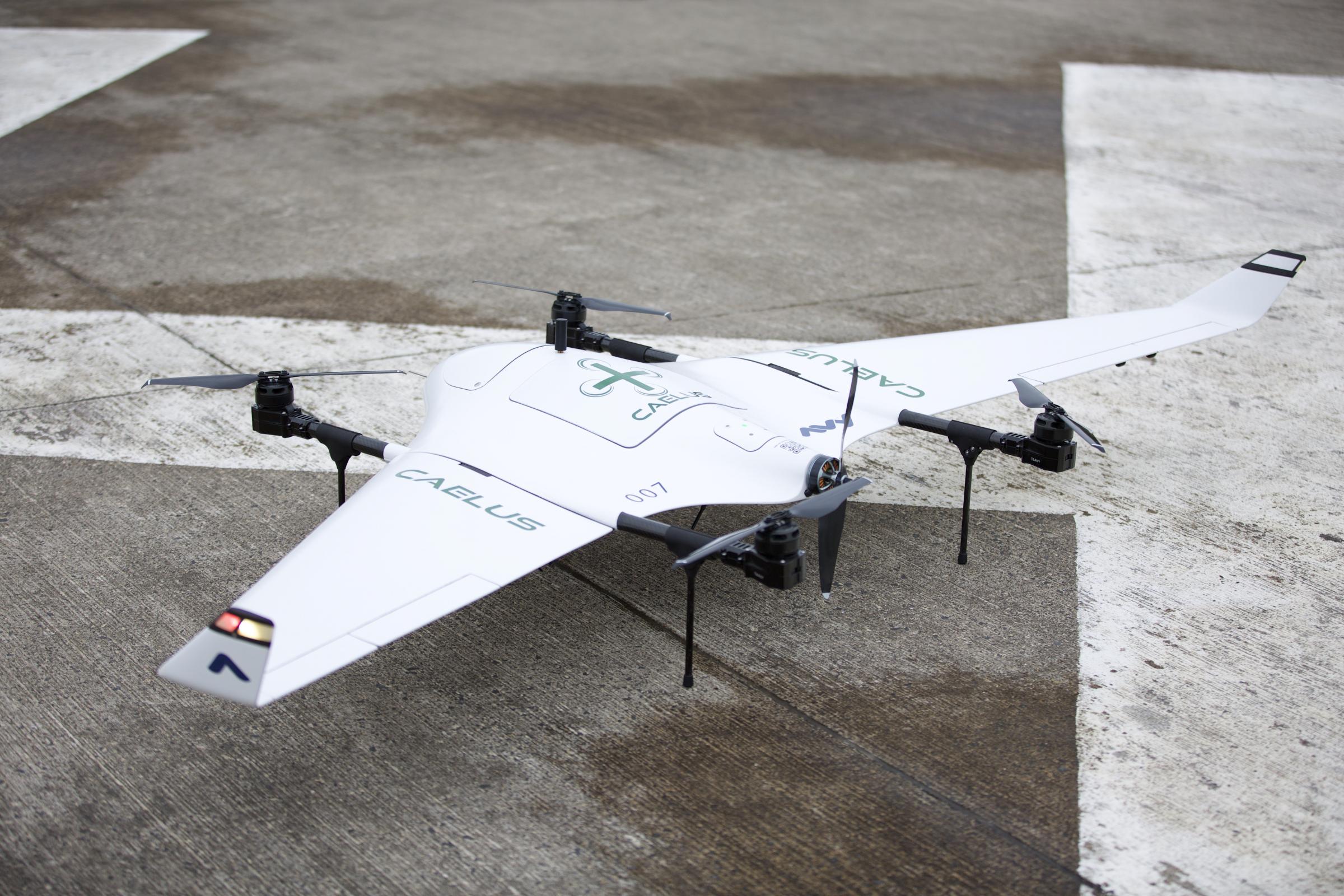
A CONSORTIUM led by the owner of Glasgow and Aberdeen airports, in partnership with NHS Scotland has secured £10.1 million in funding for its work developing the UK’s first medical distribution network using drones.
The CAELUS (Care & Equity – Healthcare Logistics UAS Scotland) consortium is made up of 16 partners including air traffic services organisation NATS, AGS Airports, Strathclyde University, and NHS Scotland.
The team are working together to create what would be the first national drone network that can transport essential medicines, bloods and other supplies throughout Scotland – including to remote communities.
The money, which represents a second round of funding for the consortium after a previous award of £1.5m in January 2020, came from the Future Flight Challenge at UK Research and Innovation (UKRI) – as did the first.
The CAELUS consortium has designed drone landing stations for NHS sites across Scotland and developed a virtual model of the proposed network which connects hospitals, laboratories, distribution centres and GP surgeries across Scotland.
NHS Scotland has said it will bring its “Once for Scotland” approach to the project, the second phase of which will involve live flight trials and removing remaining barriers to safely using drones at scale within Scotland’s airspace.
CAELUS consortium member Skyports will operate the live flight trials.
Fiona Smith, AGS Airports Group head of Aerodrome Strategy and CAELUS project director, said: “The CAELUS project is set to revolutionise the way in which healthcare services are delivered in Scotland. A drones network can ensure critical medical supplies can be delivered more efficiently, it can reduce waiting times for test results and, more importantly, it can provide equity of care between urban and remote rural communities.
“The second round of funding will allow our consortium to undertake live flights and begin to deploy the physical infrastructure needed to support the drones across Scotland.
“We will also work with local communities to ensure they know why and how the drones will be used.”
“It also demonstrates an effective industry partnership showing that when businesses, universities and public sector work together they can deliver for Scotland and outperform the competition, attracting welcome funding at this challenging time.”
Professor David Lowe, national clinical director of the Scottish Health and Industry Partnership (SHIP), said: “The CALEUS project is an exemplar of the large-scale innovation projects Scotland is capable of delivering. Through the NHS innovation test bed infrastructure and by taking a ‘Once for Scotland’ approach, we can determine the viability, scalability and efficiency of the technology, and its potential impact across the NHS.”
Dr Andy Keen, clinical lead for innovation, NHS Grampian, said: “NHS Grampian is proud to be the lead board for NHS Scotland on CAELUS.
“Our local Innovation hub will be exploring how drone technology could be used as a way of delivering care to people who live in urban, remote, rural and island locations.
“Our region is possibly uniquely positioned to test this because it covers such a vast geographical area with an approximately 50/50 spilt of urban and rural populations."
Dr Marco Fossati, of the Aerospace Centre of Excellence Strathclyde University, said: “This second tranche of funding will allow the CAELUS project to move to the next exciting stage with flight trials of the drones and testing of the critical systems we have designed that will ensure the safe operation of what will be a revolutionary development for aviation in the UK and for NHS Scotland.”
Gary Cutts, Future Flight Challenge director at UK Research and Innovation, said: “With the potential to quickly deliver medicines, bloods and other medical supplies on demand, the CAELUS project laid the groundwork for revolutionizing health care access across Scotland.”







